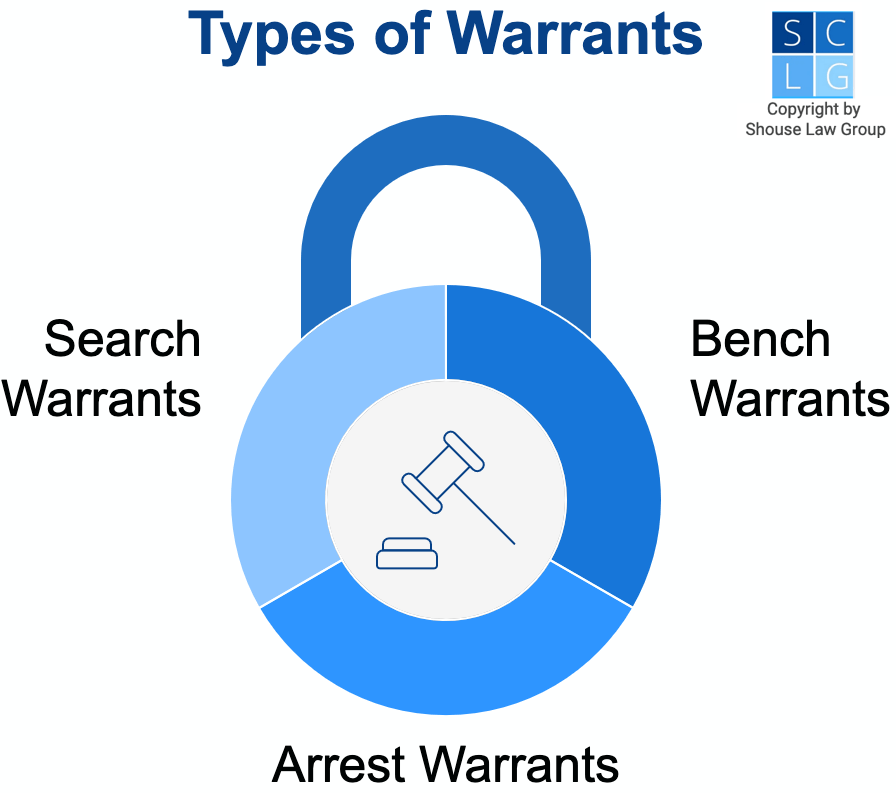Having an active arrest warrant or bench warrant in California authorizes law enforcement officers to arrest and detain you. To clear the warrant, you or your lawyer must voluntarily appear before the judge and request that it be recalled.
Meanwhile, a California search warrant authorizes police officers to search you, your residence, your vehicle, your place of business, or any other specified area suspected of containing evidence of illegal activity. Your lawyer can try to clear search warrants by filing certain motions with the court (for example, a Franks motion).

In this article, our California criminal defense attorneys answer the following questions about warrants:
- 1. Can I clear a bench warrant?
- 2. Can arrest warrants be recalled?
- 3. How can search warrants be removed?
- 4. How can a lawyer help?
- Additional Resources
1. Can I clear a bench warrant?
California judges will issue a bench warrant for your arrest if you defy a court order, such as failing to appear in court or violating probation. If you have a bench warrant, you may be able to avoid arrest by getting the warrant cleared (also called “recalled” or “quashed”).
To recall a bench warrant, you or your attorney would file a motion with the court. Then the judge would set a hearing, usually a few days later.1
Normally you must be present in court (with or without your attorney) during bench warrant hearings, especially in felony cases. However, your attorney can usually appear on your behalf at bench warrant hearings in misdemeanor cases.
If you do end up being arrested on a bench warrant, the judge can either:
- release you with or without bail or
- keep you in custody for the pendency of your case.2

Successfully quashing a bench warrant means that court personnel will remove it from California’s judicial system.
2. Can arrest warrants be recalled?
California judges issue arrest warrants at the request of prosecutors who claim there is probable cause you committed a crime. If you have an outstanding arrest warrant, you may be able to avoid arrest by showing up to court with your attorney and asking that the judge release you either:
- on bail or
- on your own recognizance (O.R.).
If the judge agrees, you can remain out of custody during the pendency of your case. (Though you would still have to get photographed and fingerprinted.)
If you are under investigation for a criminal charge but no warrant has been issued yet, an attorney can work to gather evidence of your innocence. The attorney can then show this evidence to the prosecutors; if they see that they lack probable cause to justify an arrest warrant, they may drop your investigation.3
3. How can search warrants be removed?
In California, criminal defense attorneys can challenge a search warrant by filing a motion to “quash and traverse” the warrant. The motion questions the affidavit that served as the basis for the judge issuing the warrant.4
An example of a motion to quash and traverse is a “Franks motion,” which alleges that the search warrant’s affidavit was based on false information.5 If the judge agrees and grants the Franks motion, the warrant should be voided.6
Another option is filing a motion to suppress evidence found through the search warrant. Typical grounds for a motion to suppress are:
- the search warrant was invalid on its face,
- there was no probable cause to issue the search warrant,
- the seized property or other evidence was not specifically described in the search warrant, and/or
- the execution of the search warrant was unlawful.7

Evidence found through unlawful search warrants can be disregarded as evidence.
4. How can a lawyer help?
In California, a criminal defense attorney would first investigate if you have any outstanding warrants and what type they are. Then your attorney would develop the best lawful strategy to challenge the warrant.
A challenge usually requires your lawyer filing a motion with the court and representing you at a hearing. If successful, you may be spared going into custody and/or having your property searched.
If you believe you may have an outstanding warrant, contact an attorney right away to discuss your options and how to maximize the odds of you remaining out of jail.
Additional Resources
For more in-depth information, refer to these scholarly articles:
- Search Warrants in the Digital Age – Hofstra Law Review.
- Living with Warrants: Life Under the Sword of Damocles – CrimRxiv.
- Discretionary Bench Warrants – The Criminal Law Quarterly.
- Discovering Arrest Warrants: Intervening Police Conduct and Foreseeability – Yale Law Journal.
- Deportation Arrest Warrants – Stanford Law Review.
Also see our article on the California criminal court process.
Legal References:
- Note that a judge typically issues a bench warrant if a party is in “contempt of court,” meaning a person failed to appear for a court date, pay a fine, and/or obey any other court order (for example, in a domestic violence case). See California Penal Code Section 166 PC for contempt of court rules.
- See California Penal Code Sections 978.5–981 PC.
- California Penal Code 817 PC. See also People v. Kasrawi (Cal.App. 2021) . See also People v. Coleman (Cal.App. 2024) .
- Note that a judge will typically only sign or grant a search warrant if the warrant is accompanied by an affidavit that shows that there is probable cause that the person subject to the warrant was or is engaged in criminal activity. See California Penal Code 1525 PC. See also People v. Mesa (Cal.App. 2023) .
- See Franks v. Delaware (1978) 438 U.S. 154.
- See same.
- California Penal Code 1538.5 PC.
